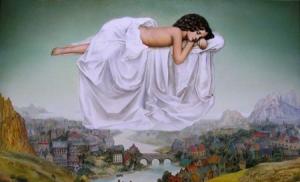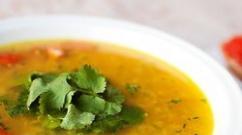Ped education with two training profiles. Outstanding teachers were among all peoples and at all times
Approved
by order of the Ministry of Education
and science Russian Federation
FEDERAL STATE EDUCATIONAL STANDARD
HIGHER EDUCATION - BACHELOR IN THE DIRECTION OF TRAINING
44.03.05 PEDAGOGICAL EDUCATION
(WITH TWO TRAINING PROFILES)
I. SCOPE
This federal state educational standard of higher education is a set of requirements that are mandatory for the implementation of basic professional educational programs of higher education - undergraduate programs in the field of study 44.03.05 Pedagogical education (with two training profiles) (hereinafter, respectively - the bachelor's program, the field of study).
II. ABBREVIATIONS USED
The following abbreviations are used in this federal state educational standard:
OK - general cultural competencies;
GPC - general professional competencies;
PC - professional competencies;
FSES VO - federal state educational standard of higher education;
network form - a network form for the implementation of educational programs.
III. CHARACTERISTIC OF THE DIRECTION OF PREPARATION
3.1. Obtaining education under the undergraduate program is allowed only in an educational organization of higher education (hereinafter referred to as the organization).
3.2. Education under the undergraduate program in organizations is carried out in full-time, part-time and part-time forms of education.
The volume of the undergraduate program is 300 credit units (hereinafter - CU), regardless of the form of study used educational technologies, implementation of a bachelor's program using a network form, implementation of a bachelor's program according to an individual curriculum, including accelerated learning.
3.3. The term for obtaining education under the bachelor's program:
in full-time education, including vacations provided after passing the state final certification, regardless of the educational technologies used, is 5 years. The volume of the undergraduate program in full-time study, implemented in one academic year, is 60 CU;
in part-time or extramural forms of study, regardless of the educational technologies used, increases by at least 6 months and no more than 1 year compared to the period for obtaining full-time education. The volume of the undergraduate program for one academic year in part-time or correspondence forms of study cannot exceed 75 CU;
when studying according to an individual curriculum, regardless of the form of education, it is no more than the period for obtaining education established for the corresponding form of education, and when studying according to an individual plan for people with disabilities, it can be increased at their request by no more than 1 year compared to the term of obtaining education for the corresponding form of education. The volume of the undergraduate program for one academic year when studying according to an individual plan, regardless of the form of study, cannot be more than 75 CU.
The specific term for obtaining education and the volume of the undergraduate program implemented in one academic year, in part-time or part-time forms of study, as well as according to an individual plan, are determined by the organization independently within the time limits established by this paragraph.
3.4. When implementing the undergraduate program, the organization has the right to use e-learning and distance learning technologies.
When teaching people with disabilities, e-learning and distance learning technologies should provide for the possibility of receiving and transmitting information in forms accessible to them.
3.5. The implementation of the undergraduate program is possible using the network form.
3.6. Educational activities under the undergraduate program is carried out in the state language of the Russian Federation, unless otherwise specified by the local regulatory act of the organization.
IV. CHARACTERISTICS OF PROFESSIONAL ACTIVITIES
GRADUATES WHO MASTERED THE BACHELOR PROGRAM
4.1. The field of professional activity of graduates who have mastered the undergraduate program includes education, the social sphere, and culture.
4.2. The objects of professional activity of graduates who have mastered the undergraduate program are training, education, development, education, educational systems.
4.3. Types of professional activities for which graduates who have mastered the undergraduate program are preparing:
pedagogical;
design;
research;
cultural and educational.
When developing and implementing a bachelor's program, an organization focuses on a specific type (types) of professional activity for which (which) a bachelor is preparing, based on the needs of the labor market, research and material and technical resources of the organization.
The undergraduate program is formed by the organization depending on the types of educational activities and requirements for the results of mastering the educational program:
focused on the research type of professional activity as the main one (hereinafter referred to as the academic bachelor's program);
focused on the pedagogical (practice-oriented) type of professional activity as the main one (hereinafter referred to as the applied bachelor's program).
4.4. A graduate who has mastered the bachelor's program, in accordance with the type (types) of professional activity, to which (which) the bachelor's program is oriented, must be ready to solve the following professional tasks:
pedagogical activity:
study of opportunities, needs, achievements of students in the field of education;
training and education in the field of education in accordance with the requirements of educational standards;
the use of technologies that correspond to the age characteristics of students and reflect the specifics of subject areas;
organization of interaction with public and educational organizations, children's groups and parents (legal representatives), participation in self-government and management of the school team to solve the problems of professional activity;
formation of an educational environment to ensure the quality of education, including with the use of information technology;
ensuring the protection of life and health of students during the educational process;
project activity:
designing the content of educational programs and modern pedagogical technologies, taking into account the peculiarities of the educational process, the tasks of educating and developing the personality through the taught subjects;
modeling of individual routes of training, education and development of students, as well as their own educational route and professional career;
setting and solving research problems in the field of science and education;
use of scientific research methods in professional activities;
study and formation of the needs of children and adults in cultural and educational activities;
organization of cultural space;
development and implementation of cultural and educational programs for various social groups.
V. REQUIREMENTS FOR THE RESULTS OF THE DEVELOPMENT OF THE PROGRAM
5.1. As a result of mastering the undergraduate program, the graduate should have general cultural, general professional and professional competencies.
5.2. A graduate who has mastered the undergraduate program should have the following general cultural competencies:
the ability to use the foundations of philosophical and socio-humanitarian knowledge to form a scientific worldview (OK-1);
the ability to analyze the main stages and patterns of historical development for the formation of a civic position (OK-2);
the ability to use natural science and mathematical knowledge for orientation in the modern information space (OK-3);
the ability to communicate in oral and written forms in Russian and foreign languages to solve problems of interpersonal and intercultural interaction (OK-4);
the ability to work in a team, tolerantly perceive social, cultural and personal differences (OK-5);
ability for self-organization and self-education (OK-6);
the ability to use basic legal knowledge in various fields of activity (OK-7);
willingness to maintain a level of physical fitness that ensures full-fledged activity (OK-8);
the ability to use first aid techniques, methods of protection in emergency situations (OK-9).
5.3. A graduate who has mastered the undergraduate program should have the following general professional competencies:
willingness to recognize the social significance of their future profession, be motivated to carry out professional activities (GPC-1);
the ability to carry out training, education and development, taking into account social, age, psychophysical and individual characteristics, including the special educational needs of students (OPK-2);
readiness for psychological and pedagogical support of the educational process (OPK-3);
readiness for professional activity in accordance with regulatory legal acts in the field of education (OPK-4);
possession of the basics of professional ethics and speech culture (GPC-5);
readiness to ensure the protection of life and health of students (OPK-6).
5.4. A graduate who has mastered a bachelor's program must have professional competencies corresponding to the type (s) of professional activity, to which (which) the bachelor's program is oriented:
pedagogical activity:
willingness to implement educational programs in academic subjects in accordance with the requirements of educational standards (PC-1);
the ability to use modern methods and technologies of training and diagnostics (PC-2);
the ability to solve the problems of education and spiritual and moral development of students in educational and extracurricular activities (PC-3);
the ability to use the possibilities of the educational environment to achieve personal, meta-subject and subject learning outcomes and ensure the quality of the educational process by means of taught subjects (PC-4);
the ability to provide pedagogical support for the socialization and professional self-determination of students (PC-5);
readiness to interact with participants in the educational process (PC-6);
the ability to organize the cooperation of students, support their activity, initiative and independence, develop creative abilities (PC-7);
project activity:
the ability to design educational programs (PC-8);
the ability to design individual educational routes for students (PC-9);
the ability to design the trajectories of their professional growth and personal development (PC-10);
research activities:
willingness to use systematized theoretical and practical knowledge for setting and solving research problems in the field of education (PC-11);
the ability to manage the educational and research activities of students (PC-12);
cultural and educational activities:
the ability to identify and shape the cultural needs of various social groups (PC-13);
the ability to develop and implement cultural and educational programs (PC-14).
5.5. When developing a bachelor's program, all general cultural and general professional competencies, as well as professional competencies related to those types of professional activities that the bachelor's program is focused on, are included in the set of required results for mastering the bachelor's program.
5.6. When developing a bachelor's program, an organization has the right to supplement the set of competencies of graduates, taking into account the focus of the bachelor's program on specific areas of knowledge and (or) type (s) of activity.
5.7. When developing a bachelor's program, the requirements for learning outcomes in individual disciplines (modules), practices, the organization establishes independently, taking into account the requirements of the relevant exemplary basic educational programs.
VI. REQUIREMENTS FOR THE STRUCTURE OF THE BACHELOR PROGRAM
6.1. includes a mandatory part (basic) and a part formed by participants in educational relations (variable). This makes it possible to implement undergraduate programs that have a different focus (profile) of education within the same area of study (hereinafter referred to as the focus (profile) of the program).
6.2. The undergraduate program consists of the following blocks:
Block 1 "Disciplines (modules)", which includes disciplines (modules) related to the basic part of the program, and disciplines (modules) related to its variable part.
Block 2 "Practices", which fully refers to the variable part of the program.
Block 3 "State Final Attestation", which is fully related to the basic part of the program and ends with the assignment of qualifications specified in the list of specialties and areas of higher education, approved by the Ministry of Education and Science of the Russian Federation.
The structure of the undergraduate program
|
The structure of the undergraduate program |
The volume of the undergraduate program in z.u. |
||
|
academic undergraduate program |
applied bachelor's program |
||
|
Disciplines (modules) | |||
|
Basic part | |||
|
Variable part | |||
|
practices | |||
|
Variable part | |||
|
State final certification | |||
|
Basic part | |||
|
Scope of the undergraduate program | |||
6.3. Disciplines (modules) related to the basic part of the bachelor's program are mandatory for students to master, regardless of the direction (profile) of the bachelor's program that he is mastering. The set of disciplines (modules) related to the basic part of the undergraduate program, the organization determines independently in the amount established by this Federal State Educational Standard of HE, taking into account the corresponding (relevant) exemplary (exemplary) main (basic) educational (educational) program (programs).
6.4. Disciplines (modules) in philosophy, history, foreign language, life safety are implemented within the framework of the basic part of Block 1 "Disciplines (modules)" of the undergraduate program. The volume, content and procedure for the implementation of these disciplines (modules) are determined by the organization independently.
6.5. Disciplines (modules) in physical culture and sports are implemented within the framework of:
the basic part of Block 1 "Disciplines (modules)" of the undergraduate program in the amount of at least 72 academic hours (2 credits) in full-time education;
elective disciplines (modules) in the amount of at least 328 academic hours. The specified academic hours are obligatory for mastering and are not translated into credit units.
Disciplines (modules) in physical culture and sports are implemented in the manner prescribed by the organization. For people with disabilities and people with disabilities, the organization establishes a special procedure for mastering disciplines (modules) in physical culture and sports, taking into account their state of health.
6.6. Disciplines (modules) related to the variable part of the undergraduate program and practices determine the direction (profile) of the undergraduate program. The set of disciplines (modules) related to the variable part of the undergraduate program and practices, the organization determines independently in the amount established by this Federal State Educational Standard of Higher Education. After the student chooses the direction (profile) of the program, a set of relevant disciplines (modules) and practices becomes mandatory for the student to master.
6.7. Block 2 "Practices" includes educational and production, including pre-diploma, practice.
Type of study practice:
practice in obtaining primary professional skills and abilities, including primary skills and abilities of research activities.
Ways of conducting educational practice:
stationary;
visiting.
Types of work experience:
practice in obtaining professional skills and experience of professional activity;
teaching practice;
research work.
Ways of conducting industrial practice:
stationary;
visiting.
Pre-diploma practice is carried out to perform the final qualifying work and is mandatory.
When developing undergraduate programs, the organization selects the types of practices depending on the type (s) of activity to which the undergraduate program is (are) oriented. The organization has the right to provide for other types of practices in the undergraduate program in addition to those established by these Federal State Educational Standards of Higher Education.
Educational and (or) production practice can be carried out in the structural divisions of the organization.
The choice of places for internships for persons with disabilities is made taking into account the state of health of students and accessibility requirements.
6.8. Block 3 "State final certification" includes the defense of the final qualification work, including preparation for the defense procedure and the defense procedure, as well as preparation for passing and passing the state exam (if the organization has included the state exam in the state final certification).
6.9. When developing a bachelor's program, students are provided with the opportunity to master disciplines (modules) of their choice, including special conditions for people with disabilities and people with disabilities, in the amount of at least 30 percent of the variable part of Block 1 "Disciplines (modules)".
6.10. The number of hours allotted for lecture-type classes, in general, for Block 1 "Disciplines (modules)" should be no more than 40 percent of the total number of classroom hours allotted for the implementation of this Block.
VII. REQUIREMENTS FOR IMPLEMENTATION CONDITIONS
BACHELOR PROGRAMS
7.1. General system requirements for the implementation of the undergraduate program.
7.1.1. The organization must have a material and technical base that complies with the current fire rules and regulations and ensures the conduct of all types of disciplinary and interdisciplinary training, practical and research work of students, provided for by the curriculum.
7.1.2. Each student during the entire period of study must be provided with individual unlimited access to one or more electronic library systems (electronic libraries) and to the electronic information and educational environment of the organization. An electronic library system (electronic library) and an electronic information and educational environment should provide the ability for a student to access from any point (both on the territory of the organization and outside it) that has access to the information and telecommunication network "Internet" (hereinafter - the network "Internet").
The electronic information and educational environment of the organization should provide:
access to curricula, work programs of disciplines (modules), practices, to publications of electronic library systems and electronic educational resources specified in work programs;
fixing the course of the educational process, the results of intermediate certification and the results of mastering the undergraduate program;
conducting all types of classes, procedures for assessing learning outcomes, the implementation of which is provided for using e-learning, distance learning technologies;
the formation of an electronic portfolio of the student, including the preservation of the student's work, reviews and assessments of these works by any participants in the educational process;
interaction between participants in the educational process, including synchronous and (or) asynchronous interaction via the Internet.
The functioning of the electronic information and educational environment is ensured by appropriate means of information and communication technologies and the qualifications of employees using and supporting it. The functioning of the electronic information and educational environment must comply with the legislation of the Russian Federation.
7.1.3. In the case of the implementation of the bachelor's program in the network form, the requirements for the implementation of the bachelor's program must be provided by a set of resources of material, technical and educational support provided by organizations participating in the implementation of the bachelor's program in the network form.
7.1.4. In the case of the implementation of the bachelor's program at the departments or other structural divisions of the organization created in accordance with the established procedure in other organizations, the requirements for the implementation of the bachelor's program must be provided by a combination of resources of these organizations.
7.1.5. The qualifications of the management and scientific and pedagogical employees of the organization must comply with the qualification characteristics established in the Unified Qualification Directory for the Positions of Managers, Specialists and Employees, section "Qualification Characteristics of the Positions of Managers and Specialists of Higher Professional and Additional vocational education", approved by order of the Ministry of Health and Social Development of the Russian Federation of January 11, 2011 N 1n (registered by the Ministry of Justice of the Russian Federation on March 23, 2011, registration N 20237), and professional standards (if any).
7.1.6. The share of full-time scientific and pedagogical workers (in terms of rates reduced to integer values) must be at least 50 percent of the total number of scientific and pedagogical workers of the organization.
7.2. Requirements for personnel conditions for the implementation of the bachelor's program.
7.2.1. The implementation of the undergraduate program is provided by the management and scientific and pedagogical employees of the organization, as well as by persons involved in the implementation of the undergraduate program on the terms of a civil law contract.
7.2.2. The share of scientific and pedagogical workers (in terms of rates reduced to integer values) with an education corresponding to the profile of the discipline (module) being taught in the total number of scientific and pedagogical workers implementing the undergraduate program should be at least 70 percent.
7.2.3. The share of scientific and pedagogical workers (in terms of rates reduced to integer values) with an academic degree (including an academic degree awarded abroad and recognized in the Russian Federation) and (or) an academic title (including an academic title obtained abroad and recognized in the Russian Federation), the total number of scientific and pedagogical workers implementing the undergraduate program should be at least 50 percent.
7.2.4. The share of employees (in terms of rates reduced to integer values) from the number of managers and employees of organizations whose activities are related to the direction (profile) of the bachelor's program being implemented (having at least 3 years of work experience in this professional field), in the total number of employees implementing the bachelor's program must be at least 10 percent.
7.3. Requirements for the material, technical and educational and methodological support of the undergraduate program.
7.3.1. Special premises should be classrooms for conducting lecture-type classes, seminar-type classes, course design (term papers), group and individual consultations, current control and intermediate certification, as well as rooms for independent work and rooms for storage and preventive maintenance of educational equipment. Special rooms should be equipped with specialized furniture and technical means teaching, serving to present educational information to a large audience.
For conducting lecture-type classes, sets of demonstration equipment and teaching and visual aids are offered, providing thematic illustrations corresponding to the exemplary programs of disciplines (modules), working curricula of disciplines (modules).
The list of material and technical support necessary for the implementation of the undergraduate program includes laboratories equipped with laboratory equipment, depending on the degree of its complexity. Specific requirements for material and technical and educational and methodological support are determined in exemplary basic educational programs.
Premises for independent work of students should be equipped with computers with the ability to connect to the Internet and provide access to the electronic information and educational environment of the organization.
In the case of the use of e-learning, distance learning technologies, it is allowed to replace specially equipped rooms with their virtual counterparts, allowing students to master the skills and abilities provided for by professional activities.
In case of non-use of the electronic library system (electronic library) in the organization, the library fund must be completed with printed publications at the rate of at least 50 copies of each of the publications of the main literature listed in the work programs of disciplines (modules), practices, and at least 25 copies of additional literature per 100 students.
7.3.2. The organization must be provided with the necessary set of licensed software (the composition is determined in the work programs of disciplines (modules) and is subject to annual renewal).
7.3.3. Electronic library systems (electronic library) and electronic information and educational environment must provide simultaneous access to at least 25 percent of students in the undergraduate program.
7.3.4. Students should be provided with access (remote access), including in the case of using e-learning, distance learning technologies, to modern professional databases and information reference systems, the composition of which is determined in the work programs of disciplines (modules) and is subject to annual updating.
7.3.5. Students with disabilities should be provided with printed and (or) electronic educational resources in forms adapted to their disabilities.
7.4. Requirements for the financial conditions for the implementation of the undergraduate program.
7.4.1. Financial support for the implementation of the undergraduate program should be carried out in an amount not lower than the basic ones established by the Ministry of Education and Science of the Russian Federation. standard costs for the provision of public services in the field of education for a given level of education and area of training, taking into account the adjustment factors that take into account the specifics of educational programs in accordance with the Methodology for determining the standard costs for the provision of public services for the implementation of educational programs of higher education in specialties (areas of training) and enlarged groups of specialties ( directions of training), approved by the order of the Ministry of Education and Science of the Russian Federation of October 30, 2015 N 1272 (registered by the Ministry of Justice of the Russian Federation on November 30, 2015, registration N 39898).
The most common entrance exams are:
- Russian language
- Mathematics (basic level)
The third exam is a specialized general education subject, which depends on the chosen specialization.
Upon admission to some specialties, an additional exam in the form of a creative competition is possible (art or music education, as well as education in the field of arts and crafts or visual arts) or physical fitness tests (physical education).
Terms of study
Education takes place on the basis of secondary (complete) general education - 11 classes. There are two forms of education: full-time - 5 years, part-time and part-time - 6-12 months longer.
Part-time education is possible only if the student has the opportunity to do an internship at his place of work.
The main subjects in training in the specialty
The main subjects include the following:
- psychology;
- pedagogy;
- pedagogical rhetoric;
- methods of teaching subjects;
- philosophy;
- basics of medical knowledge and healthy lifestyle life;
- Information Technology;
- foreign language;
- natural science picture of the world.
Description of specialty
A modern teacher is, first of all, a person who organizes and conducts lessons, during which he provides students with new information, and, in parallel, reinforces the material already passed, controls the level of knowledge of students, organizes their independent and group work. In addition, the teacher prepares and draws up lesson scenarios, participates in organizing educational activities for students, which is why a teacher is not just a person with higher education, is a comprehensively developed person.
Today, according to the decree of the Ministry of Education, a bachelor's teacher is a teacher who organizes and conducts the educational process for secondary school students - grades 5-8.
It is worth noting that in our country there is a situation that a teacher is one of the most sought-after professions.
Working as a teacher has its advantages, among which the most pleasant is a long vacation. Do not forget that the teacher spends much less time at his workplace than employees of other specialties, due to the fact that in most cases the lessons are held in the first half of the day. It should be borne in mind that one full-time teacher is only 18-20 lessons per week, while the rest of the time is needed to check the work, as well as prepare for the next lessons, which can take quite a lot of time and effort. Despite this, the teacher still has more free time than, for example, office workers, and there is no clear schedule for such work.
Do not forget that the teacher is also responsible for the health and life of the students entrusted to him, and this is a huge responsibility. Moreover, the teacher must always keep up with the times, which means that there is no way without self-education and advanced training, because educational equipment is periodically updated, new pedagogical techniques and methods appear.
The profession of a teacher belongs to the "Man-Man" type, that is, first of all, it is associated with communication with other people. That is why it is so important for a teacher to be able not only to establish, but also to maintain contacts correctly, to be active, sociable, to speak competently, to know the basics of verbal and non-verbal communication, to be emotionally stable, and all this, in addition to the main specialty, is taught at the university.
Skills acquired during training 
- Carrying out a competent pedagogical, and no less important, psychological diagnosis of students to determine the methods and techniques of education and training;
- Creation and conduct of elective courses, using the latest developments in science;
- The implementation of basic and elective courses, corresponding to the calendar lesson plan;
- Conducting lessons using new methods, approaches, as well as new technologies, taking into account the age category of students;
- Creation and maintenance of discipline, order and respect within the team both during the lesson and outside the educational institution;
- Maintaining relevant documentation;
- Rules of conduct within the educational institution, control over their observance;
- Qualified control of students' knowledge;
- Providing psychological help the student, if necessary, as well as the provision of assistance with self-determination of the student;
- Organization of extracurricular activities, educational and recreational activities;
- Development modern methods and technologies of pedagogy, taking into account the tasks set in the upbringing and development of the individual;
- Participation in the life of the school.
Professions
A lot of vacancies are open before a university graduate, from which he can choose the most suitable one.
The future specialist can consider the following professions:
- educator kindergarten;
- tutor (tutor);
- teacher in various subjects (native language and literature, Russian language and literature, foreign language, literature, Belarusian Railways, biology, geography, computer science, mathematics, music, primary school, technology, physics, physical education, chemistry);
- school psychologist.
The education system needs innovative approaches. The issue of training professional personnel with an updated set of forms, methods of training and education is relevant. Also, determine which pedagogical specialties the most sought after.
The pedagogical educational process studies such sciences as: pedagogy, sociology, physiology, management theory... The number of pedagogical professions and specialties is increasing and becoming more relevant. Pedagogical psychology studies the relationship between education, training and the overall development of students. In schools, it became necessary to introduce the position of a teacher-psychologist with specific knowledge.
Admission to pedagogical specialties, in particular the psychological and practical direction, is the most prestigious. Promotes the implementation of inclusive education, combining education, education of healthy children and children with health problems.
Students have the opportunity to gain knowledge in the field of personnel management, management, and not just learn pedagogical and psychological skills. Having studied a foreign language, you can work on a vocation abroad.
Specialties at the Pedagogical University (Institute)
Speciality Teacher Education is the training of subject teachers. Future specialists receive the following specialties of pedagogical universities:
- primary school teacher;
- a kindergarten teacher;
- subject teacher (mathematics, physics, geography, chemistry, biology, Russian language and literature, computer science, music and singing, foreign language and literature, drawing, Belarusian Railways, technology, natural science, economics, physical culture;
- school psychologist;
- speech therapist;
- group leader.
College of Education - specialties
After graduating from a pedagogical college after the 9th grade, the specialties will be as follows:
- preschool education (preschool teacher, teacher of speech therapy groups, organizer of physical education with preschoolers);
- musical art (music teacher, music director);
- primary education (primary school teacher, teacher foreign languages in elementary grades, organizer for the educational and upbringing part, teacher of computer science in primary grades, head of the fine arts studio).
Pedagogical education preschool education a specialty that deals with the education, upbringing and development of children preschool age. Students of the training course develop professional skills in the process of systematic training of the necessary disciplines for becoming a system specialist preschool education. A specialist can be involved not only in the educational process, but also in the innovative, educational one.
So, the Chinese called Confucius the Great Teacher.
In one of the legends about this thinker, his conversation with a student is given: "This country is vast and densely populated. What does it lack, teacher?" - the student turns to him. "Enrich her," replies the teacher. "But she is already rich. How can she be enriched?" the student asks. "Teach her!" - exclaims the teacher.
A man of difficult and enviable fate, Czech humanist teacher Jan Amos Comenius was the first who began to develop pedagogy as an independent branch of theoretical knowledge. Comenius dreamed of giving his people the combined wisdom of the world.
He wrote dozens of school textbooks, over 260 pedagogical works. And today, every teacher, using the words "lesson", "class", "vacation", "training", etc., does not always know that they all entered the school along with the name of the great Czech teacher.
Ya.A. Comenius claimed a new, progressive view of the teacher.
This profession was for him "excellent, like no other under the sun." He compared the teacher with a gardener who lovingly grows plants in the garden, with an architect who carefully builds up knowledge in all corners of the human being, with a sculptor who carefully hews and polishes the minds and souls of people, with a commander who energetically leads an offensive against barbarism and ignorance.
1 See: Comenius Ya.A. Selected pedagogical works. - m., 1995. - p. 248-284.
Swiss educator Johann Heinrich Pestalozzi spent all his savings on the creation of orphanages.
He devoted his life to orphans, tried to make childhood a school of joy and creative work. On his grave there is a monument with an inscription that ends with the words: "Everything - for others, nothing - for yourself."
The great teacher of Russia was Konstantin Dmitrievich Ushinsky- the father of Russian teachers.
The textbooks created by him have withstood an unprecedented circulation in history. For example, "Native Word" was reprinted 167 times. His legacy is 11 volumes, and pedagogical works are of scientific value today.
He described the public the meaning of the teaching profession:"The educator, standing on a level with the modern course of education, feels like a living, active member of a great organism, struggling with ignorance and the vices of mankind, a mediator between everything that was noble and high in the past history of people, and a new generation, the keeper of the holy testaments of people, who fought for the truth and for the good, "and his cause," modest in appearance, is one of the greatest deeds of history. States are based on this deed and entire generations live by it.
1 Ushinsky K.D. Collected works: in 11 volumes - m., 1951. - v. 2. - p. 32.
The search for Russian theorists and practitioners of the 20s. 20th century largely prepared innovative pedagogy Anton Semenovich Makarenko.
Despite those established in education, as elsewhere in the country, in the 30s. command-administrative methods of management, he contrasted them with pedagogy, humanistic in essence, optimistic in spirit, imbued with faith in the creative forces and capabilities of man.
The theoretical legacy and experience of A. S. Makarenko have gained worldwide recognition.
Of particular importance is the theory of the children's collective created by A. S. Makarenko, which organically includes a subtle in terms of instrumentation and a unique method of individualization of education in terms of methods and methods of implementation. He believed that the work of an educator is the most difficult, "perhaps the most responsible and requiring from the individual not only the greatest effort, but also great strength, great abilities."
2 Makarenko A. S. Works: In 7 volumes - M., 1958. - T. V. - S. 178.
2. Features of the teaching profession
The nature of the teaching profession. A person's belonging to a particular profession is manifested in the features of his activity and way of thinking.
According to the classification proposed by E. A. Klimov, the teaching profession refers to a group of professions, the subject of which is another person.
But the pedagogical profession is distinguished from a number of others primarily by the way of thinking of its representatives, an increased sense of duty and responsibility. In this regard, the teaching profession stands apart, standing out in a separate group. Its main difference from other professions of the "man-to-man" type is that it belongs both to the class of transformative and to the class of managing professions at the same time. Having as the goal of his activity the formation and transformation of the personality, the teacher is called upon to manage the process of her intellectual, emotional and physical development, the formation of her spiritual world.













